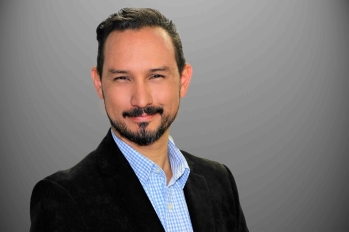
When we discuss growth, our minds often gravitate toward development, numerical expansion, new ideas, and the establishment of fresh projects. These notions indeed capture essential aspects of growth. However, are they the entirety of what growth entails? Are there other dimensions we might be overlooking? I propose that there is at least one additional perspective on growth. It’s one that we often exclude from our definitions: sustainability.
Sustainability is not commonly viewed as a form of growth. Yet, its absence from our definition has hindered our global understanding of the concept. Growth, when seen through the lens of sustainability, takes on a different meaning. In this context, sustainability has maintenance in view. This definition diverges from the technical interpretation prevalent in the politico-economic world of sustainable development.
We must also recognize the value of maintaining existing foundations.
When we shift our focus to the maintenance and sustenance of what has already been established the new perspective challenges a prevailing obsession with novelty—new ideas, initiatives, and exponential developments. While there is nothing inherently wrong with pioneering new projects, we must also recognize the value of maintaining existing foundations.
New and novel isn’t always best
Consider the allure of having our names associated with new projects. As leaders, we often strive to leave our mark on history. However, this pursuit should be tempered by genuine need rather than self-interest, competition, or fleeting popularity. Unfortunately, our society tends to prioritize the novel over the enduring, even within religious institutions like the church.
God embodies both creativity and sustainability.
Yet our God embodies both creativity and sustainability. In Genesis 2:15, we read that God created humans and placed them in the garden of Eden to work and keep it. The act of tending to what already exists—of sustaining the good things—is a vital form of growth. Instead of fixating solely on expansion, what if we sought sustainability in our current leadership tasks and roles?
Sustainability: a Pauline principle
The words of Apostle Paul in 1 Corinthians 15:3 resonate with the perspective I’m outlining. “I passed on to you what was most important and what had also been passed on to me.” This verse positions the present as a bridge between the past and the future—a continuity that transcends novelty.
Paul exemplifies what we might call a new light leader. His energetic and innovative approach led to numerous great initiatives within the church. Yet, he did not merely blaze new trails; he also honored the legacies of those who came before him as part of God's revelation to him. Apostle Paul recognized their efforts as seeds that contributed to the ongoing growth of knowledge among generations of Christians.
As Paul declares, “I delivered to you first of all that which I also received” (1 Corinthians 15:3). By implication, he acknowledges that the gospel isn’t an original creation. Rather, he acts as a faithful transmitter and custodian of the message passed down to him from the Lord Jesus Christ, through his disciples. Have you ever wondered why Paul refrained from creating his own gospel, especially when many preachers today feel compelled to innovate? Spurgeon provides a succinct answer: “We are not makers and inventors; we are repeaters. We tell the message we have received.”
Growth encompasses not only innovation but also preservation, continuity, and stability.
Consequently, leaving a legacy doesn’t always require starting something entirely new. Tending to and maintaining what others have initiated can yield the same profound impact. Growth encompasses not only innovation but also preservation, continuity, and stability.
Do the priceless work of preservation
Beloved, if your current leadership responsibility involves caring for the works of those who labored before you, rejoice! This task is no small feat in God’s eyes. Remember Paul’s words elsewhere: “Whatever you do, work heartily, as for the Lord and not for people” (Colossians 3:23).
In summary, sustainable growth involves both pioneering and preserving. Let us not overlook the value of tending to what we’ve inherited. For therein lies continuity and true progress. May our devoted services, in God’s vineyard, play a vital role in continuing the spread of the gospel, connecting the past with the future, and ensuring that its message remains enduring for generations to come.
Originally published by TGC Africa. Republished with permission.
Babatomiwa M. Owojaiye serves as the Senior Pastor of First ECWA in Ilorin, Nigeria, under the Evangelical Church Winning All (ECWA). He is also a fellow at the Centre for Research and Innovation of ECWA Theological Seminary, in Igbaja. Beyond his pastoral role, Babatomiwa is the founder and CEO of the Centre for Biblical Christianity in Africa, an initiative aimed at deepening biblical understanding across the continent and expanding the transformative impact of the Christian message in the public sphere. He holds a PhD in World Christianity from Africa International University, in partnership with the University of Edinburgh. During his academic journey, he distinguished himself as a doctoral teaching and research fellow at the university. Babatomiwa is actively involved in intergenerational leadership development, he is widely traveled and a highly sought-after speaker. He is happily married to Oluseyi, and their union is blessed with children.
The Gospel Coalition Africa is a valuable media partner, which exists to equip the next generation of believers, pastors, and church leaders to shape life and ministry around the gospel with an African perspective.





